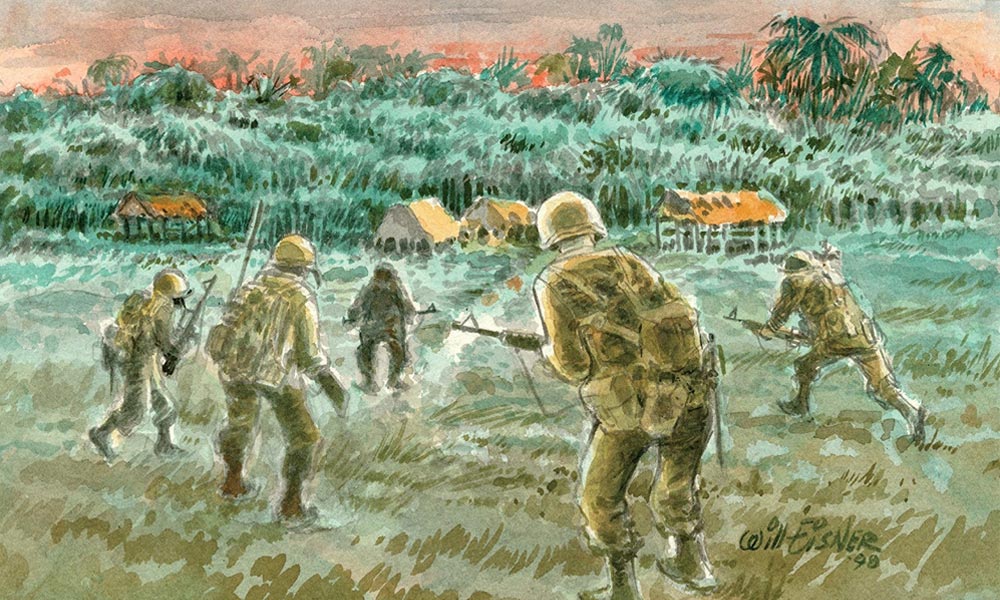Graphic novels might have superheroes and villains and plenty of the stuff we associate with outdated nerd stereotypes, but the medium has something to offer everyone else too—especially history buffs. There’s nonfiction here too, covering war, protests (peaceful and not), science, politics, and the mixtures of all of the above. These are our favorite graphic novels that will teach you some history.
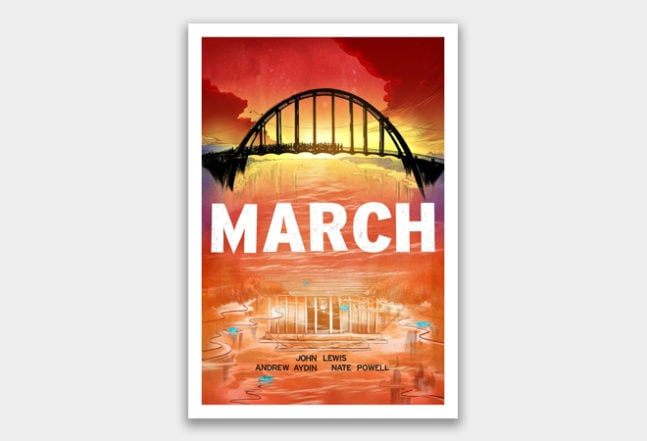
March
John Lewis
Those who remember the Civil Rights movement of the 1960s are getting rarer and rarer, but their stories are some of the most interesting in modern American history. That’s why we’re thankful for Representative John Lewis’s March. He’s one of the few men alive who remember working directly with Martin Luther King Jr. and has painstakingly recorded his story in graphic novel form, creating a vivid, emotional, and approachable account of his time both planning and executing the massive protests of that era. We were struck by how effectively Lewis brings the reader to the front lines of civil unrest, so much so that we can almost imagine being behind him as he and his companions march in the streets. $29
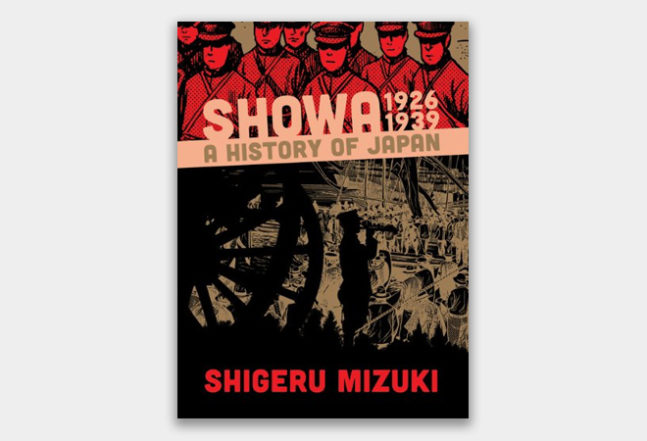
Showa 1926-1939 : A History of Japan
Shigeru Mizuki
Japanese history leading up to their participation in the Second World War has to be the most complicated and culturally distinct time period in the long history of human civilization. If we can understand what life was like for the citizens of that society and how it got to be that way, we’d make some serious headway into learning what makes humanity tick on a global level. Mizuki was very young when the Showa period in Japan started, so he himself has early memories of the events in the book. He built on those memories to create a meticulously researched, extraordinarily lifelike graphic novel to better communicate why Japan was the way it was. $25
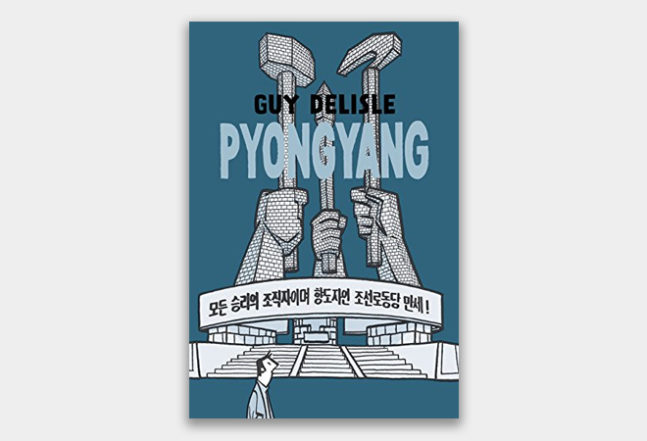
Pyongyang: A Journey in North Korea
Guy Delisle
Excepting a few remote uncontacted tribes, North Korea has to be home to the most isolated people on Earth. Very few outsiders are allowed into the country, so most of what we know comes from the brave souls who escape into South Korea. Guy Delisle is one of the few allowed in, gaining access when he was working in animation for a French company. While he was there, he recorded as much information as he could and compiled it in Pyongyag: A Journey in North Korea. Delisle style is hardly objective, but this is still a valuable glimpse into an isolated totalitarian dictatorship, pretty much the only one of its kind on the planet. $13
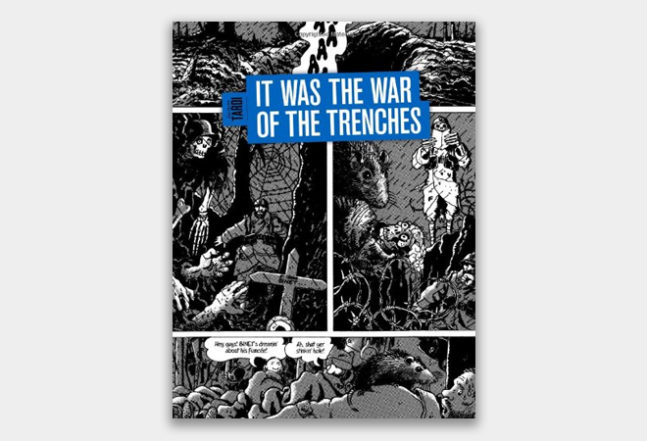
It Was the War of the Trenches
Jacques Tardi
As you may or may not know, 2018 marks the centenary of the armistice that marked the end of fighting in the First World War, which is also a tragically underrepresented conflict. It’s arguably the most important conflict of the 20th century and so seamlessly set up the Second World War that some historians have abandoned thinking of the two as separate conflicts. It Was the War of the Trenches is an excellent way to honor the hundred years since the armistice and educate yourself about the combat and living conditions of the war. Not to mention the book is widely recognized as Jacques Tardi’s masterpiece. Read one of the greatest living cartoonists as he tells the story he’s most passionate about. $56
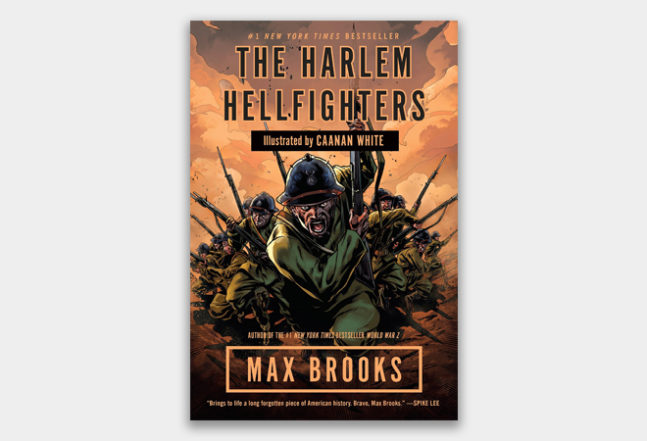
The Harlem Hellfighters
Max Brooks
Stick with the First World War for a little while longer and you’ll come to The Harlem Hellfighters, the story of what has to be the most intimidating and effective combat units of the French and American armies during the conflict. This was one of the black units drummed up when the United States entered World War I, and they withstood just about every form of racism and prejudice anyone could throw at them. They didn’t start as a combat unit, but it’s why everyone in the regiment joined. When they finally worked their way into combat under French command, they didn’t give an inch of ground. $13
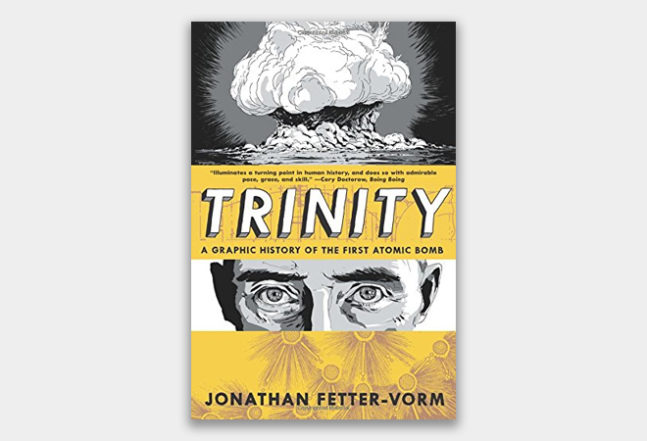
Trinity: A Graphic History of the First Atomic Bomb
Jonathan Fetter-Vorm
No one really talks about the process surrounding the development of the atomic bomb. We don’t know if that’s a holdover from the Cold War mentality or if teachers don’t have the time. As usual, it’s probably a bit of both. If you wanted to remedy your ignorance of the process, give Trinity a shot. The graphic novel gives a reasonably complete picture of the situation surrounding the atom bomb, filling in some gaps in our historical knowledge and showing us just how complicated the world got after the bombs were dropped to end the Second World War. $15
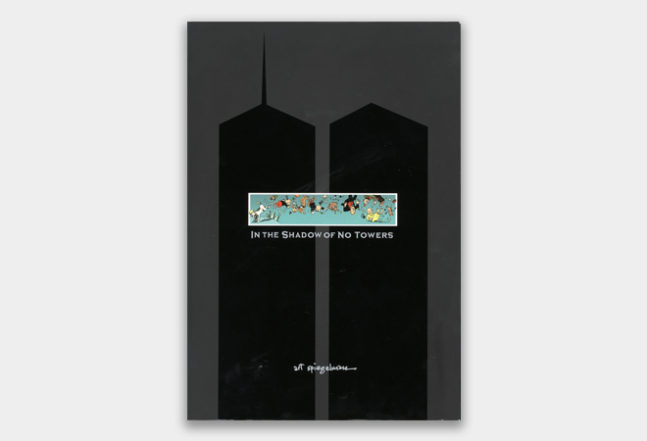
In the Shadow of No Towers
Art Spiegelman
You’ll know Art Spiegelman from the cultural mainstay Maus, the story of how his father fought against the German blitzkrieg in Poland and later became a prisoner of war and survived the Holocaust. His follow up to Maus was In the Shadow of No Towers, his personal account of the terrorist attacks of September 11th. Spiegelman is in a survivor’s unique place to talk about the attacks, as he was both local to the attacks and his teenage daughter went to school below the towers. He, along with thousands of other survivors, had to watch as the government bent over backwards to politicize the event, using that politicization to pollute the memory of the attacks as well as United States foreign policy moving forward. And he tackles the issue in his distinct style. $22
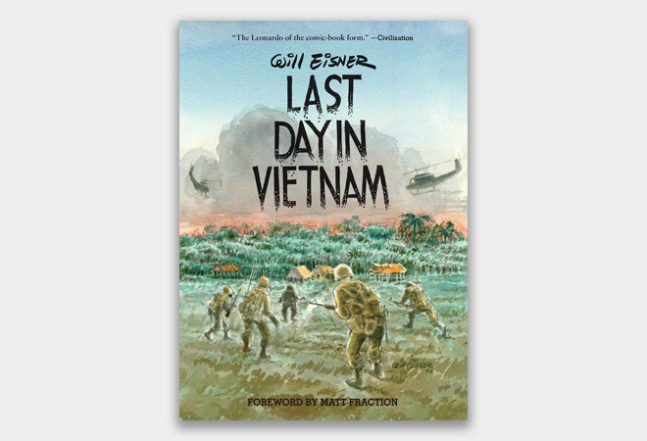
Last Day in Vietnam
Will Eisner
Here’s a prediction that won’t win us any awards. People are going to start talking about the war in Vietnam the same way they’ve been talking about the Second World War. The war that wasn’t officially a war has had a significant and lasting impact on how the United States conducts police actions and could be considered the first interventionist move in a foreign policy that would soon be dominated by projected power. Last Day in Vietnam is essentially a collection of graphic short stories meant to give the reader a fuller picture of the conflict, from full-on combat to the general boredom of existence on base. Like the conflict, it hits the highs and lows of human existence with all the humor and horror that entails. $18
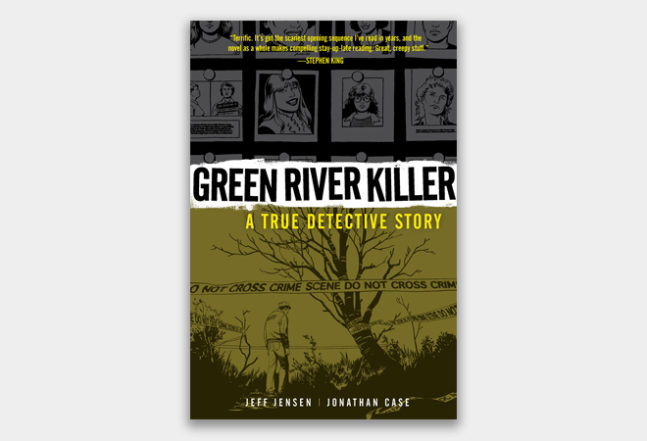
Green River Killer
Jeff Jensen
With all the true crime dominating the world of podcasting right now, we thought we’d include one of the genre’s graphic novel offerings, written by the son of one of the main investigators. Green River Killer covers the 1980s manhunt for the Green River Killer, Tom Jensen’s subsequent 1990s investigation into the serial killer, and Jensen’s subsequent subsequent interviews with the killer. In real life, Jensen spent 180 days interviewing the killer, which gave him as comprehensive an understanding as you could expect to get from a man who murdered dozens of women. It’s gripping, thrilling, and true, everything you could want from the genre. $10

